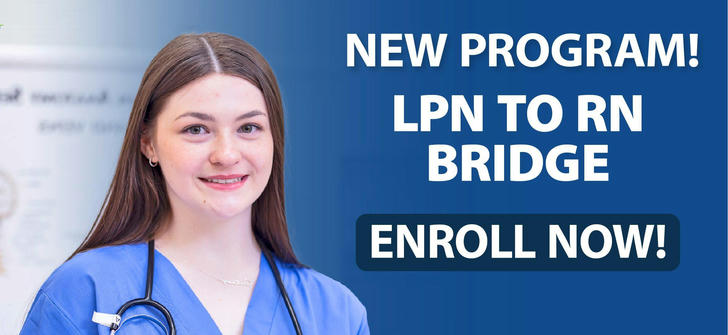✨ Comprehensive Guide to 9-Month Online LPN to RN Programs
Course Features, Career Outlook, and Application Tips 🔍
If you’re an LPN aiming to become an RN fast, this guide will explain what “9-month LPN→RN online” programs actually look like — the hybrid reality, costs, and practical tips to pick a program that works.

1️⃣ Overview of Leading 9-Month Online LPN to RN Programs
📊 Duration, Tuition, and Accreditation Comparison
Many reputable universities provide accelerated LPN to RN bridge programs designed to fast-track RN licensure. While some programs exceed nine months, several offer condensed curricula around this timeframe. Tuition ranges widely—from approximately $190 to $835 per credit—depending on institution and residency status.
✅ Most top programs are accredited by recognized bodies such as:
Commission on Collegiate Nursing Education (CCNE)
Accreditation Commission for Education in Nursing (ACEN)
This accreditation ensures eligibility for licensure and maintains educational quality.
🎯 Examples:
| University | Duration | Tuition (Per Credit) | Accreditation | Delivery Format |
|---|---|---|---|---|
| University of Oklahoma | 9 months full-time | $190–$801 | CCNE | Hybrid |
| Herzing University | Up to 28 months | Varies | ACEN | Online & Campus Options |
🔹 When choosing a program, consider: length, cost, and accreditation to align with your career goals and budget.
2️⃣ Practical Instruction and Clinical Arrangements
📚 What Students Can Expect
These online programs balance theoretical knowledge with hands-on clinical experience. While coursework is delivered via interactive online platforms, clinical rotations are arranged locally to satisfy state licensing requirements.
🏥 Clinical placements typically include:
Hospitals
Clinics
Community health centers
Students generally complete 200 to 500 clinical hours, focusing on:
Patient assessment
Medication administration
Care coordination
🩺 Example: Indiana State University offers fully online coursework combined with community clinical rotations, enabling students to gain practical skills without relocating.
Students also engage in:
Simulation labs
Virtual case studies
Supervised direct patient care
This hybrid model ensures competency for the NCLEX-RN licensure exam and professional nursing duties.
3️⃣ Key Course Highlights
📌 Core Content & Skill Development
Bridge programs focus on foundational and advanced nursing competencies including:
Anatomy & Physiology
Pharmacology
Microbiology
Health Assessment
Nursing Theory
Leadership & Ethical Issues
Evidence-Based Practice
💡 Critical skills developed:
Clinical decision-making
Communication
Healthcare management
🎓 For example, Saint Xavier University’s LPN to BSN track integrates leadership training and comprehensive coursework to enhance career progression.
Hands-on training with modern healthcare technologies and simulations prepares students to confidently manage diverse clinical scenarios and adapt to evolving healthcare environments.
4️⃣ Career Development: LPNs vs. RNs
📈 Employment Outlook & Role Differences
Advancing from LPN to RN opens the door to:
Higher salaries
Greater autonomy
Expanded clinical responsibilities (e.g., medication administration, care planning)
Leadership and specialized nursing roles
💰 Salary insights:
| Nursing Role | Average Annual Salary |
|---|---|
| Critical Care RN | ~$81,920 |
| Surgical/Geriatric RN | ~$78,000 |
The job market increasingly favors RNs due to their advanced training and comprehensive patient care abilities. Holding an RN license also enables pursuit of higher education such as BSN or advanced practice roles, offering financial benefits and professional fulfillment.
5️⃣ Important Considerations & FAQs
📢 Before Applying
✔️ Confirm program accreditation and NCLEX pass rates.
✔️ Check clinical placement support near your location.
✔️ Meet admission requirements:
Valid LPN license
Minimum GPA (typically 2.5–3.0)
Prerequisite coursework completion
Possible entrance exams (e.g., TEAS)
Documentation of clinical hours
💸 Plan finances carefully: explore federal aid, scholarships, and employer tuition reimbursement.
❓ Common Questions:
Program duration: usually 12–18 months for accelerated tracks.
Can clinicals be completed locally when studying online? Usually yes, with school support.
Is a bachelor’s degree required? Not always for bridge programs, but may be necessary for advanced degrees.
Review each program’s curriculum and support services thoroughly to ensure it fits your unique situation and career goals.
🌟 Summary
This guide delivers a clear roadmap for licensed practical nurses seeking to advance to registered nursing through 9-month online programs. By exploring program features, clinical training, skill development, career prospects, and application tips, aspiring RNs can confidently select the best pathway for their professional growth.
